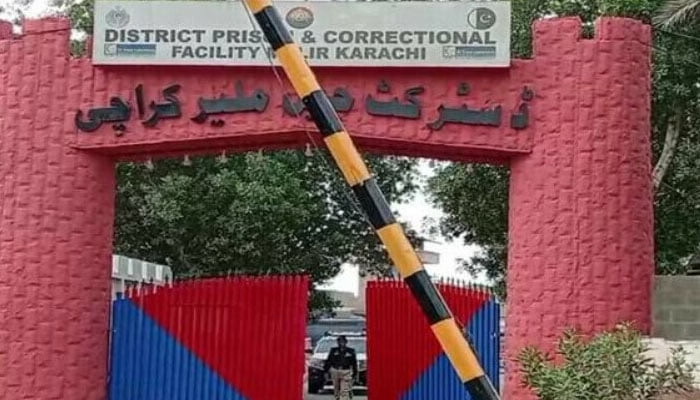A startling revelation has emerged from the Sindh Prisons Department, exposing a severe shortage of personnel across jails in the province, raising concerns about inmate security and overall prison management. Despite the shortfall, dozens of officers are reportedly deployed on VIP duties, serving ministers and political figures instead of safeguarding prison facilities.
Over 1,600 Vacancies, But Officers Assigned to VIPs
According to sources, the Sindh Prisons Department has a total sanctioned strength of 6,548 personnel, but 1,655 posts remain vacant, creating a significant operational gap. Despite this, a substantial number of officers are not on active prison duty, with many assigned to unofficial roles, including VIP protection and administrative functions in other departments.
Sources revealed that:
- 37 officials are currently posted with ministers and political figures.
- 10 officials are working with the Home Department.
- 67 personnel are stationed at the office of the Inspector General (IG) Prisons, a number many critics argue is excessive.
- Another 18 officials are working in cities other than where their actual postings are.
This misallocation of human resources comes at a time when prisons across Sindh, particularly in Karachi, are struggling to manage growing inmate populations with alarmingly low staff-to-prisoner ratios.
Malir Jail: A Case Study in Mismanagement
The situation is most alarming at Karachi’s Malir Jail, where only 28 personnel were on duty as of June 3, managing a population of over 6,000 inmates. The jail has 313 sanctioned posts, but only 251 are currently filled, and the available staff is spread thin.
A senior source in the department warned that the shortage of personnel drastically increases the risk of prisoner escapes, riots, and internal security breaches. “With just a handful of officers watching thousands of inmates, we’re inviting chaos,” said one insider.
Department Acknowledges the Crisis
DIG Prisons Karachi Malik Aslam acknowledged the issue, confirming that many officials are serving outside their original duty stations. He stated that the department has already begun taking corrective action.
We are writing letters to call back all such personnel who are not on active prison duty,” DIG Aslam said. “Every official will soon return to their assigned post within the department.
He further assured that disciplinary measures would be taken if personnel fail to return to their rightful postings.
Critics Call for Accountability
The situation has sparked sharp criticism from civil society and public safety experts who argue that the abuse of departmental resources to serve political figures is not only unethical but dangerous.
This is a matter of public safety. These officers are trained to manage prisons, not to guard VIPs at political rallies,said a human rights lawyer based in Karachi.
Several observers also pointed out the systemic misuse of state institutions for personal and political gain, calling for an independent audit of staff deployment in the prisons department.
Broader Implications for Security
Experts warn that the shortage of prison staff could have serious security implications across Sindh. Prisons, already overcrowded and under-resourced, are now at the brink of a potential law-and-order disaster if the manpower crisis isn’t urgently addressed.
Prison escapes, internal violence, and even terrorist infiltration could become more likely if the current deployment patterns continue.
While the DIG’s assurance of recalling personnel is a step in the right direction, many believe that more drastic reforms are needed. This includes:
- Filling the 1,655 vacant posts immediately through fast-track recruitment.
- Ending VIP deployments from the prison department unless under extraordinary legal necessity.
- Reintroducing accountability mechanisms to ensure officials cannot be misused for political or personal service.
The public now watches closely to see whether these promises materialize—or whether the Sindh Prisons Department continues to buckle under political interference and mismanagement, with public safety hanging in the balance.



